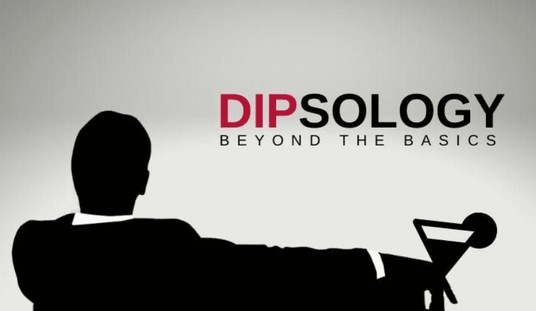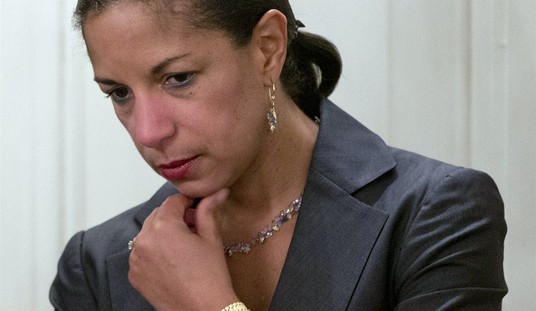I often hear these days about how conservative Donald Trump is. I’ll grant you that, so far, he’s been more conservative than I expected. Much of that is the flag-waving I-love-a-parade brand of conservatism that doesn’t excite me much, but a sizable chunk is real conservatism: almost (almost) uniformly excellent judges, reduction of regulation, etc. Notably, so far — as long as he doesn’t get us into a stupid war — his policies have been a clear improvement on what we would have gotten from a Hillary Clinton. Especially if you can ignore his clownish public statements, pathological dishonesty, and wretched character, and focus only on what he does, you can be pretty happy with what we’ve seen. (Of course, what the President says matters — but I’m getting ahead of myself.)
But amid all the praise for the guy, here’s the thing. We’re kinda giving him a pass, even on policy, because we expected so little. It’s like when the kid with the dunce cap gets a question right: it warms your heart and everything, but it doesn’t really make the dunce smart. Put another way: if you have two kids, and one gets straight A’s, and the other fails all of their classes and does drugs, you’re disappointed when the first kid gets a B, while that same B would make you wildly ecstatic with the performance of the other kid. When the latter sort of expectation becomes ingrained, it can lead you to what George W. Bush memorably called “the soft bigotry of low expectations.”
So I’d like to take a moment to point out two ways in which Donald Trump is objectively horrible: 1) the debt, and 2) his support for dictators.
THE DEBT
I’m not sure it has quite sunk in for everybody just how awful the recent spending bill was. Here’s a synopsis:
Republican lawmakers in 2011 brought the U.S. government to the brink of default, refused to raise the debt ceiling, demanded huge spending cuts, and insisted on a constitutional amendment to balance the budget.
On Wednesday, they formally broke free from those fiscal principles and announced a plan that would add $500 billion in new spending over two years and suspend the debt ceiling until 2019. This came several months after Republicans passed a tax law that would add more than $1 trillion to the debt over a decade.
With all these changes, the annual gap between spending and revenue in 2019 is projected to eclipse $1.1 trillion, up from $439 billion in 2015. And they are expanding the deficit at an unusual time, when the economy is growing and unemployment is low, a dynamic that often leads to shrinking budget gaps.
Ah, but that’s all Congress’s fault, I hear you say. Not so fast, Sparky! Trump’s proposed budget, released since the are all on him, and they are wretched as well. He just got through proposing that we add $7 trillion to our debt:
The White House budget request would add $984 billion to the federal deficit next year, despite proposed cuts to programs like Medicare and food stamps and despite leaner budgets across federal agencies, including the Environmental Protection Agency.
Mr. Trump’s budget statement calls deficits the harbingers of a “desolate” future, but the White House plan would add $7 trillion to the deficit over the next 10 years.
Trump could have been a strong voice for fiscal conservatism and threatened to veto anything that added to the deficit. He has been the opposite. Our children will pay the price.
PRAISE FOR DICTATORS
I said up top that if you can ignore what Trump says, and “focus only on what he does, you can be pretty happy with what we’ve seen.” Criticizing his praise for dictators might seem to be at odds with that — but it’s not. First, what the President says always matters. Any president receives outsized news coverage, and Trump gets his share, to put it mildly. But especially in foreign affairs, what he says matters. And Trump loves to praise dictators.
Trump’s man-love for Vladimir Putin is well known, and need not be recounted here. Never mind the murders of journalists — which Trump enables by denying the proof. Never mind the political repression and corruption. We love us that Russian strongman!
But the praise and back-slapping of dictators doesn’t end with Putin. There’s the praise for Duterte’s murderous tactics, from May 2017:
President Trump praised President Rodrigo Duterte of the Philippines in a phone call last month for doing an “unbelievable job on the drug problem” in the island nation where the government has sanctioned gunning down suspects in the streets.
Xi has made himself a virtual emperor and heads a repressive society that is perhaps the greatest threat to the U.S. He jails journalists and political opponents, and censors information with a vengeance. Trump says of Xi: he is a “very good man.”
Similarly, Trump praises al-Sisi and Erdogan without restraint or caveat. I could go on.
Much of this gets defended as good diplomacy. You want us to get along with other countries, don’t you, Patterico? Well, sure … but the U.S. has always walked a fine line when it comes to oppressive regimes. We want to get along, but we have always tried to keep human rights in mind, and send a signal that we disapprove of abuses. All that is out the window when you are openly applauding the extrajudicial murder of drug dealers.
Yes, we have some good judges and maybe regulations have been eased a bit. But the kid in the dunce cap isn’t a genius. Let’s tone down the praise to bring it in line with reality.














Join the conversation as a VIP Member